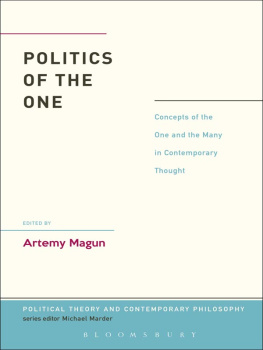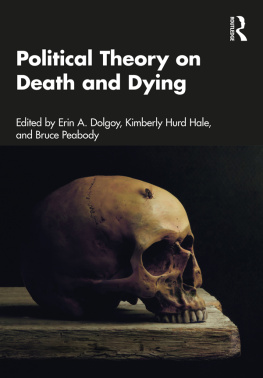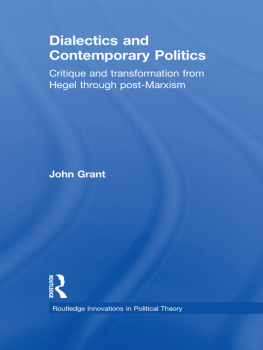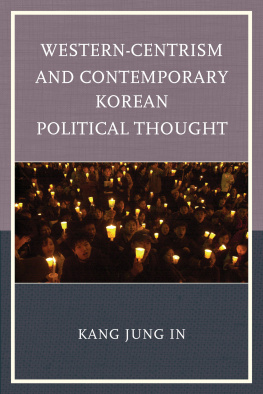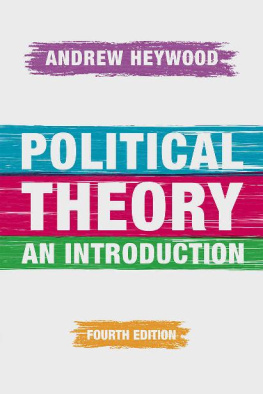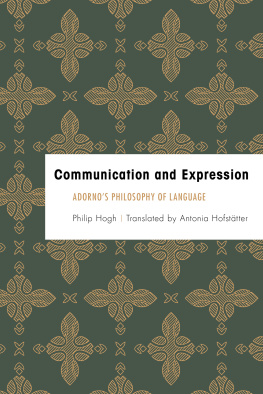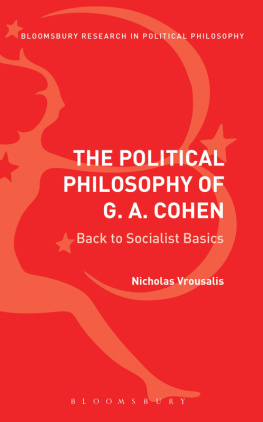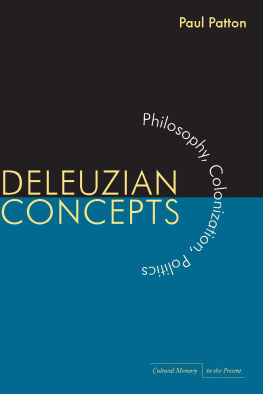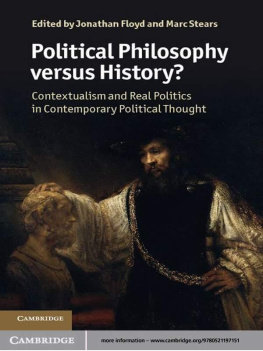
About the series
The Political Theory and Contemporary Philosophy series stages an ongoing dialogue between contemporary European philosophy and political theory. Following Hannah Arendt's and Leo Strauss's repeated insistence on the qualitative distinction between political theory and political philosophy, the series showcases the lessons each discipline can draw from the other. One of the most significant outcomes of this dialogue is an innovative integration of 1) the findings of twentieth- and twenty-first-century phenomenology, existentialism, hermeneutics, psychoanalysis, and deconstruction (to name but a few salient currents) and 2) classical as well as modern political concepts, such as sovereignty, polity, justice, constitution, statehood, self-determination, etc.
In many instances, the volumes in the series both re-conceptualize age-old political categories in light of contemporary philosophical theses and find broader applications for the ostensibly non- or apolitical aspects of philosophical inquiry. In all cases, political thought and philosophy are featured as equal partners in an interdisciplinary conversation, the goal of which is to bring about a greater understanding of today's rapidly changing political realities.
The series is edited by Michael Marder, Ikerbasque Research Professor in the Department of Philosophy at the University of the Basque Country, Vitoria-Gasteiz.
Other volumes in the series include:
Deconstructing Zionism by Michael Marder and Santiago Zabala
Heidegger on Hegel's Philosophy of Right by Marcia S Cavalcante Schuback, Michael Marder and Peter Trawny
The Metaphysics of Terror by Rasmus Ugilt
The Negative Revolution by Artemy Magun
The Voice of Conscience by Mika Ojakangas
POLITICS OF THE ONE
Concepts of the One and the Many in Contemporary Thought
Edited by
Artemy Magun
Political Theory and Contemporary Philosophy
Michael Marder, Series Editor

Bloomsbury Academic
An imprint of Bloomsbury Publishing Plc
175 Fifth Avenue50 Bedford Square
New YorkLondon
NY 10010WC1B 3DP
USAUK
www.bloomsbury.com
First published 2013
Artemy Magun, 2013
All rights reserved. No part of this publication may be reproduced or transmitted in any form or by any means, electronic or mechanical, including photocopying, recording, or any information storage or retrieval system, without prior permission in writing from the publishers.
No responsibility for loss caused to any individual or organization acting on or refraining from action as a result of the material in this publication can be accepted by Bloomsbury Academic or the author.
Library of Congress Cataloging-in-Publication Data
A catalog record for this title is available from the Library of Congress.
ISBN: 978-1-4411-6166-6
Typeset by Fakenham Prepress Solutions, Fakenham, Norfolk NR21 8NN
In memory of Professor Alexey Chernyakov (19552010)
Contents
Jussi Backmann, University Lecturer in philosophy, University of Jyvskyl, Finland.
Marcia S Cavalcante Schuback, Professor of Philosophy at Sdertorn University, Stockholm, Sweden.
Alexey Chernyakov (19552010), Professor of Philosophy in the Department of Liberal Arts and Sciences (Smolny College) at Saint-Petersburg State University, Russia.
Keti Chukhrov, Associate Professor at the Russian State University for Humanities, member of the Moscow Art Magazine Editorial Board, Russia.
Oleg Kharkhordin, Professor and Rector, European University at Saint-Petersburg, Russia.
Vitaly Kosykhin, Professor of Philosophy at Saratov State University, Russia.
Susanna Lindberg, Associate Professor of Philosophy at the University of Tampere, Finland.
Artemy Magun, Professor of Democratic Theory, Chair of the Department of Political Science and Sociology at the European University at Saint-Petersburg; Associate Professor in the Department of Liberal Arts and Sciences (Smolny College) at Saint-Petersburg State University, Russia. Member of the group Chto Delat.
Boyan Manchev, Associate Professor at the New Bulgarian University, Sofia, Bulgaria.
Michael Marder, Ikerbasque Research Professor of Philosophy at the University of the Basque Country, Vitoria-Gasteiz; Editor of the Continuum series Political Theory and Contemporary Philosophy.
Jean-Luc Nancy, Professor Emeritus, University of Strasbourg, France.
Gerald Raunig, Professor of Aesthetics and Political Philosophy at Zrich University of the Arts, Switzerland; founding member of the European Institute for Progressive Cultural Politics (EIPCP), founding member of the e-journal Transversal and of the review Kulturrisse.
Yves Sintomer, Professor of Political Science and Chair of the Department, at the University Paris 8, France. Invited researcher at Neuchtel University, Switzerland.
Unum est necessarium. This advice of Christ to Martha became the very formula of Western theology and metaphysics (as a result of what was in fact a pun, because Christ certainly did not speak of the One as a principle, but used the word to point at a distinct thing among many others). This mood of heroic allegiance succeeded the more ancient analogy between being and monarchy: The rule of many is not good; one ruler let there be. In both cases, their difference notwithstanding, the One is an imperative. Which also means that it is recognition of a lack.
The divergence between the Neoplatonic transcendent One and the Aristotelian worldly One as an organizing principle, significant as it is, has not prevented theory and practice from a consensus on the preference for the One over the many. The few heretics, such as tienne de la Botie, author of a political pamphlet Against the One, attest to the general rule.
It is not surprising that, in the twentieth century, the One became a target for philosophical attack, on different levels of sophistication, which include liberal apologies of pluralism in politics and epistemology (Isaiah Berlin etc.) and the more metaphysical political ontology of multitudes. A multitude, say Michael Hardt and Antonio Negri, is an irreducible multiplicity; the singular social differences that constitute the multitude must always be expressed and can never be flattened into sameness, unity, identity, or indifference. Multa sunt necessaria, Martha, one could perhaps translate, more in the spirit of contemporary busy life.
The problem with this position of Deleuze and Guattari, which, by the way, is borrowed from Plato's Parmenides (hypothesis #8, based on the premise of the non-being of One) is the assurance that this inversion of the traditional approach would in fact not be an inversion, but a complete severance of relationship with the one. But why is it then rhetorically contrasted with the One? Indeed, in the same book, Deleuze and Guattari say that rhizome, as an instance of a pure multiplicity, is not derived from the one, the one is not added to it, but it is something from which the One is always subtracted. The Lacanian minus One is not that far away. Indeed, maybe the multiplicity is more lively than the One, but it cannot be represented without first considering one as a negative magnitude or a fulcrum. Follow the plants, say Deleuze and Guattari (see on this the chapter by Michael Marder in this volume), but it is implied that a plant is not just a pure multiplicity (which would go in all directions at once, would not it?) but has rather to do with an excess, overplenitude of the One.
Next page
